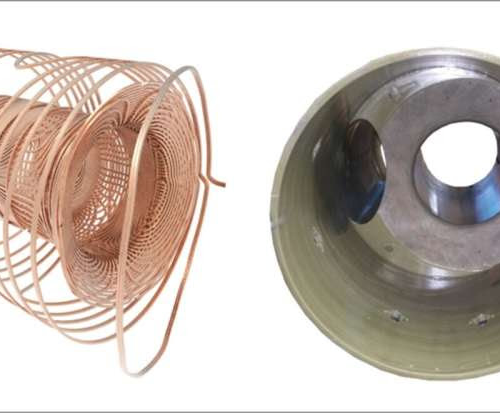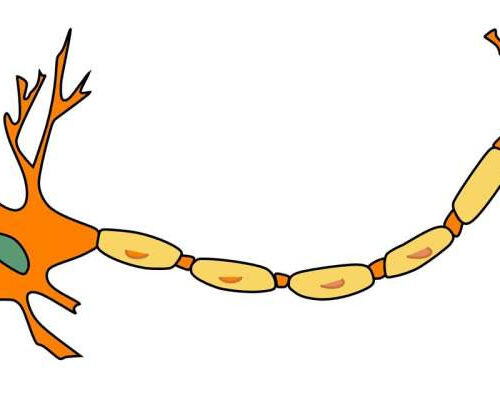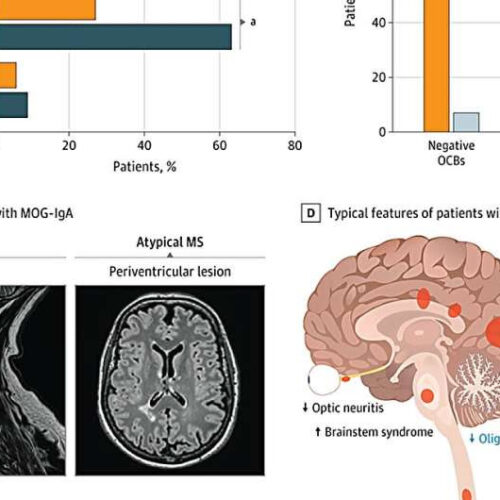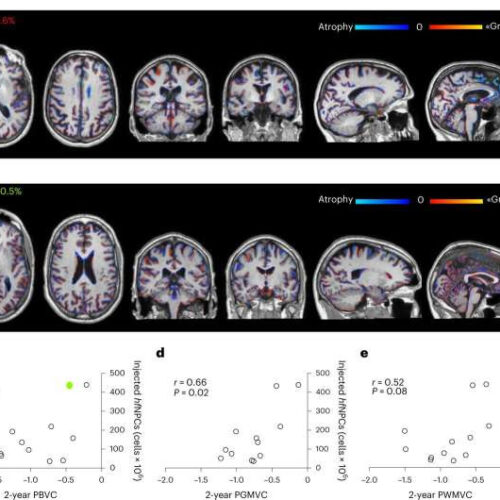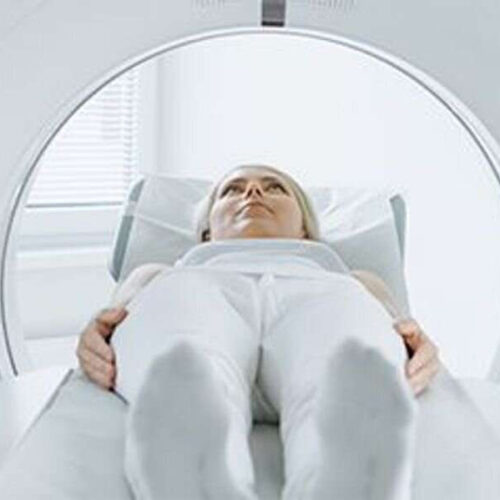by Netherlands Institute for Neuroscience Microglia nodules in MS are more frequent than in stroke but are similar in size. IHC stainings with HLA and PLP shown in brown. Quantifications performed on n = 8 MS and n = 8 stroke donors. a PLP and HLA staining of (NA)WM matter in MS and in stroke shows no sign of demyelination...
Tag: <span>MS</span>
Visualizing multiple sclerosis with a new MRI procedure
by Christoph Elhardt, ETH Zurich The coils that generate the magnetic field (left) and a visualization of the entire scanner (right). Credit: ETH ZurichMultiple sclerosis (MS) is a neurological disease that usually leads to permanent disabilities. It affects about 2.9 million people worldwide, and about 15,000 in Switzerland alone. One key feature of the disease is...
Scientists develop potential new drug treatment for multiple sclerosis
by Centre for Addiction and Mental Health Credit: Pixabay/CC0 Public Domain CAMH-led pre-clinical studies using a small molecule drug have shown promise as a potential new treatment for multiple sclerosis (MS). The results have been published in the journal Science Advances. Expanding on Dr. Fang Liu’s earlier work that identified a novel drug target for the...
Similarity between vitamin B12 loss and multiple sclerosis revealed
Findings identify molecular signaling pathway that could enhance current MS treatmentsPeer-Reviewed Publication SANFORD-BURNHAM PREBYS VITAMIN B12 IS ESSENTIAL NUTRIENT THAT SUPPORTS HEALTHY DEVELOPMENT AND FUNCTIONING OF THE CENTRAL NERVOUS SYSTEM. CREDIT: NONE For decades, scientists have noted an intriguing similarity between a deficiency in vitamin B12 – an essential nutrient that supports healthy development and...
Possible biomarker of MS-like autoimmune disease discovered
by University of Basel Clinical Characterization of Patients Seropositive for Myelin Oligodendrocyte Glycoprotein (MOG) Immunoglobulin (Ig) A A, Frequency of disease manifestations for patients with isolated MOG-IgA and MOG-IgG. B, Frequency of positive and negative cerebrospinal fluid (CSF)–specific oligoclonal bands (OCBs) in MOG-IgA seropositive multiple sclerosis (MS) compared with seronegative MS. C, Magnetic resonance imaging (MRI)...
First genetic marker for MS severity discovered
Reviewed by Megan Craig, M.Sc. Jun 28 2023 Scientists identify the first genetic marker for MS severity, opening the door to preventing long-term disability. A study of more than 22,000 people with multiple sclerosis has discovered the first genetic variant associated with faster disease progression that can rob patients of their mobility and independence over...
Can Mediterranean diet help people with MS preserve thinking skills?
by American Academy of Neurology Credit: Pixabay/CC0 Public Domain People with multiple sclerosis (MS) who follow a Mediterranean diet may have a lower risk for problems with memory and thinking skills than those who do not follow the diet, according to a preliminary study released today, March 1, 2023, that will be presented at the...
More Evidence for Epstein-Barr Virus’ Role in MS
Jim Kling November 08, 2022 Epstein-Barr Virus (EBV) is a suspect in the development of multiple sclerosis (MS), and recent research developments have strengthened that connection. In 2022, two studies received quite a bit of attention. One showed that EBV seroconversion occurs in the years prior to MS diagnosis in virtually every patient, and that serum levels of the neuronal damage...
Transplanting stem cells from fetuses into people with MS reduces markers in early-stage trial
by Bob Yirka, Medical Xpress The number of injected hfNPCs inversely correlates with brain volume loss. Color-coded areas of brain atrophy (blue) and growth (red) representing PBVC at 2 years from hfNPC transplantation in two representative patients, respectively, receiving a low dose (a, red in c) and high dose (b, green in c) of hfNPCs....
New MRI technique might help spot MS sooner
JANUARY 7, 2022 Researchers in Austria say a new MRI technique may lead to faster diagnosis and treatment for people with multiple sclerosis. The technique can detect biochemical changes in the brains of people with MS early in their disease, according to findings published Jan. 4 in the journal Radiology. “MRI of neurochemicals enables the detection...

